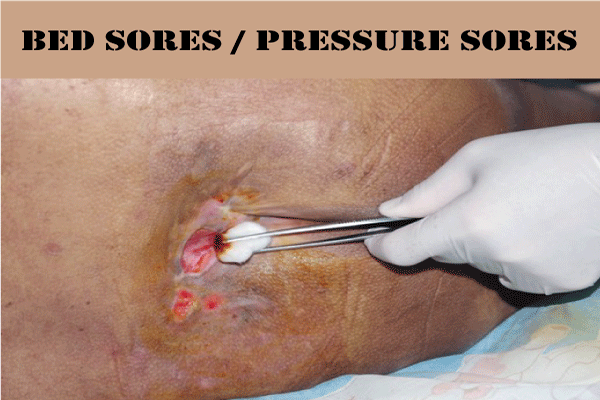5 Tips for Preventing Pressure Sores (Bed Sores)
Pressure sores, or bed sores, are an unfortunate but common medical condition that affect patients in hospitals and long-term care facilities, including nursing homes, as well as people at home who are cared for by family members or other caregivers. Pressure sores usually develop when pressure on the skin lasts long enough to cause damage to the tissue underneath. The National Pressure Ulcer Advisory Panel estimates that up to 90% of pressure ulcers are preventable through proper treatment and management of risk factors such as nutrition and mobility.
1) Wear Loose Clothing
The pressure from your clothing can cause bed sores to develop quickly, so wearing loose clothing that allows air circulation is important. Use body pillows and other positioning tools to make sure you don’t get too stiff while you sleep. If you do begin to develop bed sores, elevate your feet and shoulders as much as possible. Make sure you change positions often and apply extra lotion before going to bed every night. Talk with your doctor about wearing special protective pads at night—but only after consulting with a professional who can tell you whether these will fit into your condition treatment plan properly. Be aware that there are some complications that could arise when using these pads; talk through those first before deciding if they are right for you.
2) Change Positions Frequently
If you’re in a wheelchair, change positions frequently throughout the day, even if it just means rolling from side to side. If you’re in bed, don’t just lie on your back; turn on your side and lie in multiple positions. This will keep pressure off of your skin and prevent sores. Plus, changing positions gives you a little break from sitting still too long.
3) Use Support Devices When Possible
Using support devices helps distribute your body weight evenly across your skin, helping you avoid pressure points.
Examples include gel pads, air or water cushions and firm mattresses or beds with adjustable mattress toppers.
If you spend most of your day sitting down, consider using an office chair with built-in lumbar support. And if you spend a lot of time on your feet, look into buying shoes that have a slight heel so that weight is taken off of your toes and placed on top of your ankles.
4) Take Good Care of Skin While Bathing
It’s easy to treat dry skin on your arms and legs, but it can be more difficult when it comes to your buttocks and back.
Before taking a bath or shower, use a scrub brush to exfoliate in circular motions. This will remove dead skin cells while raising new skin to the surface. When you're done with your bath or shower, pat yourself dry with a towel instead of rubbing so you don't cause damage by breaking open old wounds or creating new ones.
Finally, apply moisturizer immediately after bathing—your body needs moisture and stripping it away will only make issues worse.
5) Use a Mattress That Is Right For You
Bed sores are skin injuries that occur when pressure is put on a specific area of your body and it remains in place over an extended period of time. These types of wounds typically affect patients who have impaired circulation, weakened immune systems or suffer from dementia. It’s possible to develop bed sores while sleeping, sitting or even laying down.
But can be avoided with proper precautions, like using a mattress made especially for your body type.
While mattresses come in all shapes and sizes, there are four main categories: firm, extra-firm, ultra-firm and soft. If you tend to move around a lot at night or sleep on your side, you should look for something soft. If you’re not very active at night but sleep primarily on your back, try something more firm. If you sleep mostly on your stomach or back and don't move much throughout the night then an extra-firm mattress might be best. When buying a new mattress always keep these tips in mind!












No comments:
Post a Comment